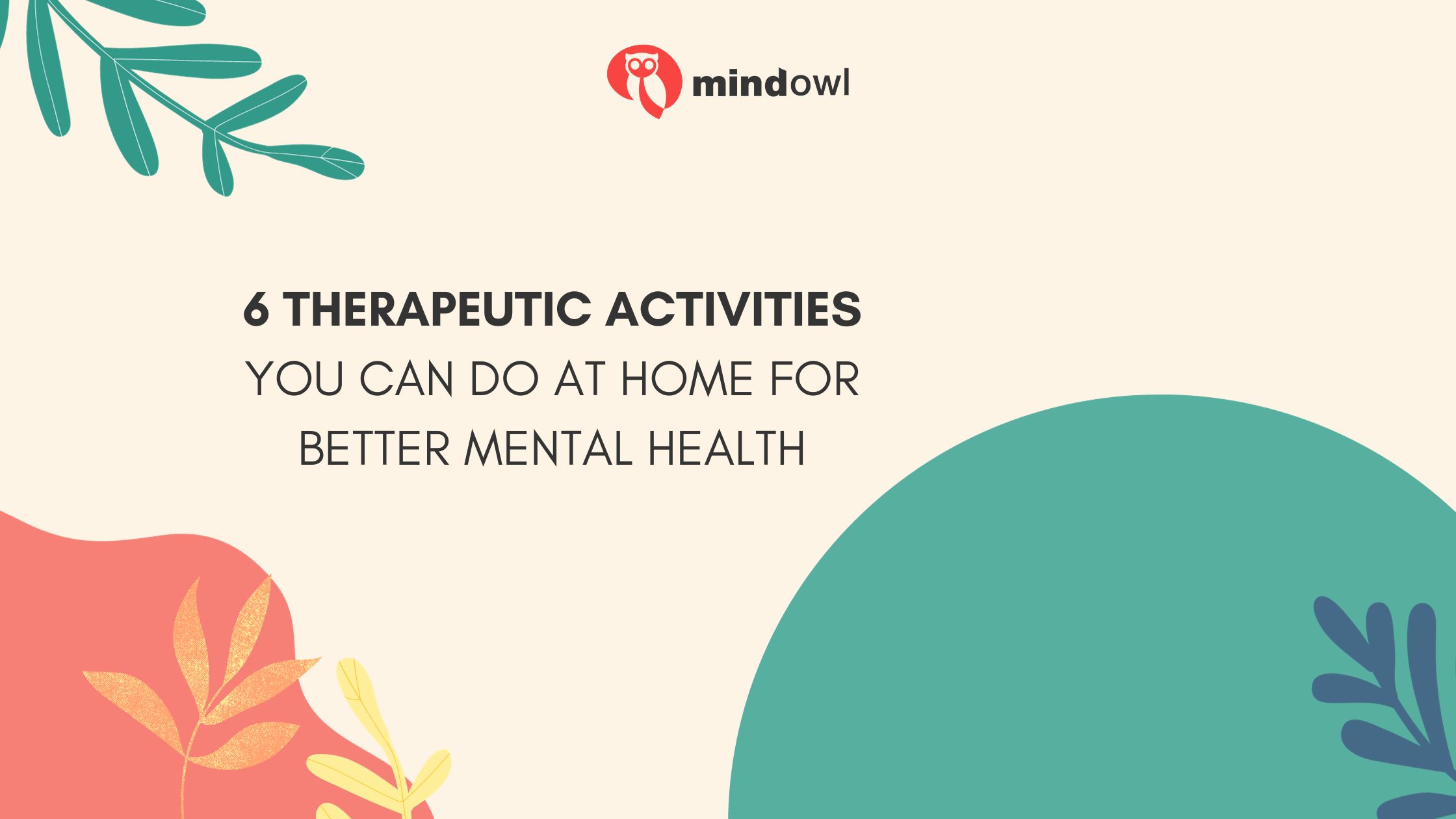Image: pexels
Battling the blues or feeling stuck in a mental fog can sometimes feel as if you’re slogging through thick mud with no clear way out. Often, life’s demands and persistent stressors contribute to this overwhelming sense of unease, cluttering our minds with worry and restlessness.
And while a doctor’s consultation can’t and shouldn’t be ignored, taking everyday steps to improve your mental well-being is invaluable.
More like hidden keys that can unlock a more serene state of mind; these therapeutic activities allow you to cultivate mental clarity and emotional balance without needing to step outside your front door.
1. Mindful Meditation
Ever thought of transforming a corner in your home into an oasis of calm? Perhaps you should because mindfulness meditation is a superb way to combat mental turmoil, a buffer to the chaos that everyday life struggles might throw at you.
By focusing on the breath and inviting stillness, you initiate an internal quietude that often seems elusive in today’s always-on world. Not only does this practice reduce stress, but it also enhances overall cognitive function – sharpening focus and fostering a heightened sense of awareness.
Just start with a few minutes daily and before you know it, this simple activity might just become the most anticipated part of your routine.
2. Artistic Stress Relief
When you let your creativity flow, a special kind of magic happens. Picking up a brush, a pencil or even molding clay can act as a conduit for letting out those tangled emotions that words sometimes do very little to express.
Picture this: the rhythmic strokes of painting acting like a visual form of deep breathing, each color helping to release pent-up frustrations.) Imagine working on seascape paintings, where the calming blues and serene waves can transport you to a place of tranquility. It doesn’t require Picasso-esque skill. Rather, the act itself is where relief and serenity lie.
So whether it’s doodling during lunch breaks or crafting an elaborate canvas painting on weekends, such artistic endeavors can serve as powerful tools for soothing the mind.
3. Gardening Therapy
Tilling the soil means getting your hands dirty and all, but it can be surprisingly therapeutic. There’s something grounding about connecting with nature through gardening as you cultivate life and beauty from your very fingertips!
As you nurture plants, transferring worries into watering and care, you watch your stress ease away. It’s as though each seedling speaks to potential growth from the inside. Plus, witnessing the fruits of your labor flourish invites a satisfying sense of accomplishment.
Whether it’s caring for houseplants or tending to a backyard garden, green therapy can work magic in helping you find peace and develop patience. By getting premium plastic planter boxes, you can elevate your gardening experience while ensuring durability and style for your outdoor or indoor spaces. These planter boxes are ideal for creating a lush, organized garden that suits both beginners and seasoned green thumbs.
4. Exercise and Emotional Wellness
Now, here’s something you probably didn’t know – getting active isn’t just about looking good or staying fit. A truckload of research underscores the link between regular physical activity and a boost in mood.
For example, a study published in The Lancet Psychiatry journal found that individuals who exercised had fewer days of poor mental health compared to those who didn’t.
You don’t have to run marathons though; even light yoga or a brisk walk around the block can ignite endorphins – those ‘feel-good’ hormones. This natural high enhances emotional regulation and can form an effective barrier against stress, anxiety, and depression.
5. Culinary Self-Care
Mixing flavors and experimenting in the kitchen goes beyond merely preparing a meal; it’s an act of self-care. From kneading bread to meticulously decorating cupcakes, cooking demands mindfulness, which can stop the perpetual spin cycle of stress and anxious thoughts.
Consider the delicate balance of ingredients in recipes like those harnessing the impact of thiolized yeast – it’s a precise science that yields delicious results, alongside a surprising sense of pride and accomplishment after every culinary adventure you undertake.
The warmth from the oven, aromatic spices hanging in the air, tasting your creation – all these are small joys that signal to both body and mind: “All is well.”
6. Reading for Resilience
Ever lost yourself in a good book? It’s not just an escape. Immersing oneself in literature can be a sturdy vessel, steering you away from troubling thoughts and toward tranquil shores.
Diving into different worlds through the pages of a novel exercises your imagination. It enhances empathy – and has been linked to improved brain connectivity. A compelling narrative can even lower stress levels, with some studies suggesting up to 68%, making it an effective tool for mental resilience.
Considering that next literary adventure? Choose a story that captivates you – the benefits are both enriching and mentally restorative.
In essence, your home can be a sanctuary for mental health just as much as any therapist’s office. Embrace these activities and watch your well-being blossom. Simple steps, taken consistently, pave the path to a healthier mind and a brighter life.
MindOwl Founder – My own struggles in life have led me to this path of understanding the human condition. I graduated with a bachelor’s degree in philosophy before completing a master’s degree in psychology at Regent’s University London. I then completed a postgraduate diploma in philosophical counselling before being trained in ACT (Acceptance and commitment therapy).
I’ve spent the last eight years studying the encounter of meditative practices with modern psychology.

